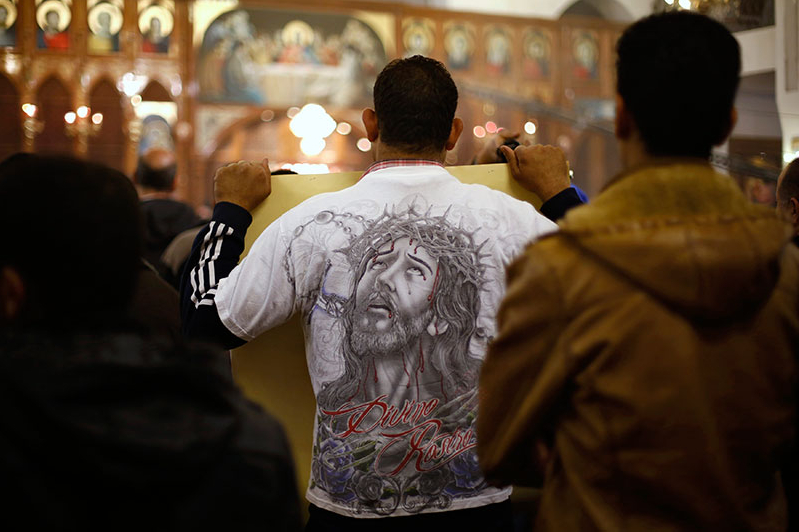
Christian orthopedic doctor Wadie Ramses was held as a hostage for 92 days by radical Muslim kidnappers in Egypt. He recalled details of his ordeal in an interview.
According to Ines San Martin of Crux, 63-year-old Ramses of Cairo was held captive in the Egyptian desert and restrained with blindfolds and handcuffs by his Muslim captors. They debated on whether to execute him by beheading or secure a ransom.
"We can't cut off his head," Ramses recalled one of his kidnappers saying. "There are many more Christians. We need money, and the families will only pay if they know we'll give their relatives back."
Martin described the conditions that Ramses faced during his captivity. He was "stored" in a tent for three months and suffered two broken ribs and a fractured arm thanks to beatings by his captors, who also called him an "atheist" and "pig" as insults.
"He was forced to lay bound all day on rocks and sand, he said, eating nothing but three small loaves of bread a day and a few cups of dirty water," Martin wrote. "Periodically, Ramses said he would be put in a car and driven for hours to another location to make phone calls negotiating his freedom."
Ramses told Martin that the captors would read passages from the Muslim holy book, the Qur'an, and whip him after he refused to accept them.
"They'd tell me that we [Christians] had re-written the Bible, that we got it wrong by removing verses," Ramses said. "They'd ask me how, as an educated man, I could believe that God had a son."
Ramses added that his captors used "a plastic whip" after he said he didn't believe in the Qur'an. However, he claimed to remain calm throughout his inhumane captivity.
"I was at peace during the whole ordeal, [because] I had my faith with me," Ramses said.
Even though the kidnapping happened over a year ago, Ramses could not recall who took him hostage or where he was held. He speculated to Martin that Bedouins captured him and held him at a desert location.
"They kidnapped me because I'm a Christian," he said. "There's no other reason."
According to Martin, the ransom for his life totaled to roughly $200,000. This money was scraped together by his family with help from the community.
"That wasn't his only loss, since death threats forced him to abandon his clinic and school without any compensation, and he also lost his income from the army," Martin said.
Ramses also blamed Egyptian police for failing to do anything about his victimization. He accused them of actively participating in his suffering.
"I know some of the men who beat me were members of the security forces," Ramses said.
Ramses stood by his accusation against the police, noting that they could have rescued him any time he made ransom arrangements over the phone with his son. He claimed these phone calls happened every eight to 10 days.
"My son was able to track down the place, because I always called from the same location and the same phone," Ramses said. "The police had at least 13 opportunities to rescue me, so how is it they never found the place?"
Ramses told Martin that he received threats after his release from captivity warning him to stay quiet on his ordeal. He thought his treatment only happened because he was a Christian.
"The police won't apprehend those who hurt Christians, he said, judges won't prosecute their persecutors, schools won't educate their children, and the government considers Christians second-class citizens," Martin wrote.
Despite what he went through, Ramses told Martin that his captivity was "the best 92 days of my life." That's because before the kidnapping, he saw his Christian faith as a routine instead of a personal relationship with God.
"I realized this wasn't very Christian of me," Ramses said. "I had forgotten how to pray, how to talk to God, and [the kidnapping] proved a good time to do this."
Ramses added that "God allowed for me to go through this so I could become a better person." However, he admitted to Martin that he still had struggles like any other Christian.
"I'm still human, so I'm still sinful," Ramses said.






